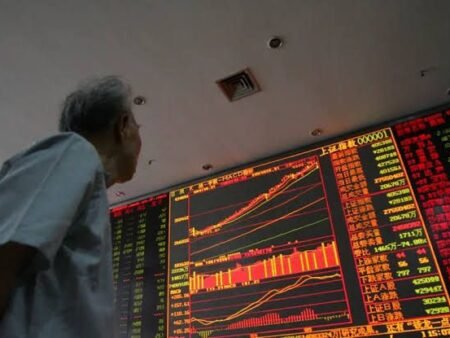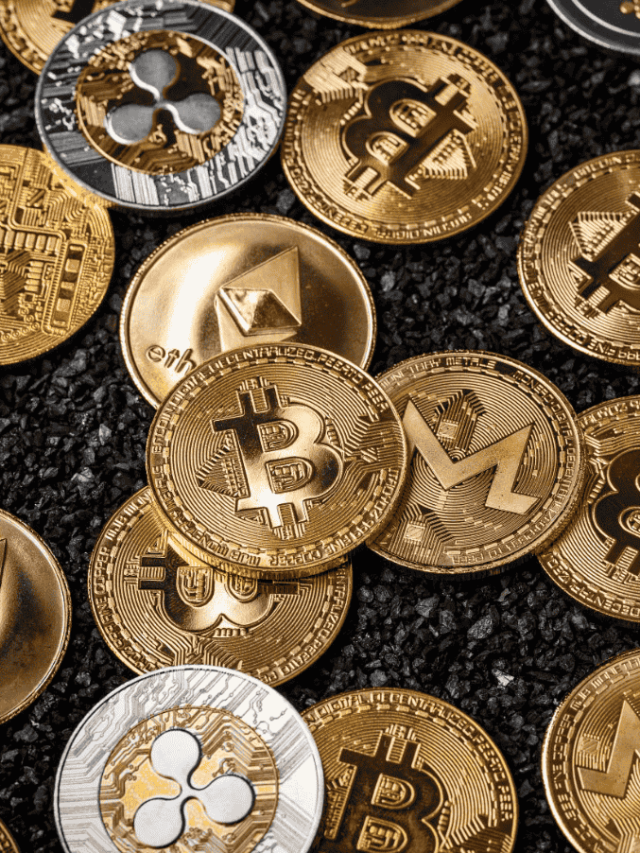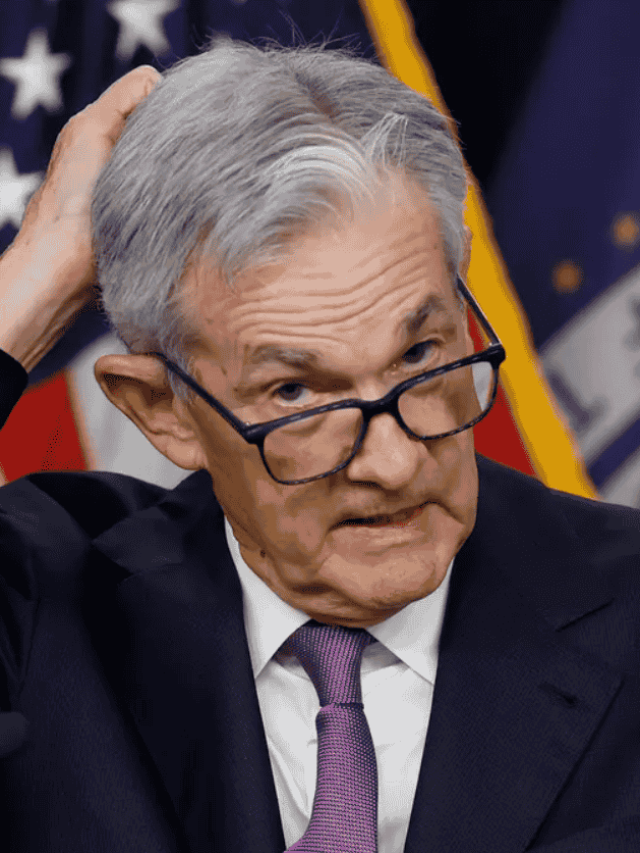Federal Reserve Chairman Jerome Powell recently testified before the Senate Banking Committee, and while the main focus of the hearing wasn’t on the cryptocurrency industry, some significant points were raised that have stirred conversation in the crypto world. Among the most notable topics discussed was the growing trend of “debanking” — a phenomenon in which legal sectors, including cryptocurrency firms, are facing difficulties accessing banking services. Powell’s comments indicate that this issue has not only caught the attention of U.S. lawmakers but is also a matter of concern for him, prompting a reassessment of internal policies at the Federal Reserve.
What is Debanking?
The term “debanking” refers to the refusal by financial institutions, particularly banks, to provide services to certain customers or industries. In the context of cryptocurrency, debanking often happens when banks cut ties with firms or individuals involved in the digital assets sector, especially in response to pressure from regulatory authorities. This is a particularly important issue for the crypto industry, where access to traditional banking services is vital for day-to-day operations. Many cryptocurrency firms have experienced difficulties maintaining bank accounts or accessing services such as payment processing or money transfers, and some claim this trend is driven by regulatory fears, such as concerns over money laundering and other illicit activities.
Powell, during his testimony, acknowledged the rising number of reports of debanking in the cryptocurrency sector and expressed his concern. “I too, am troubled by the quantity of these reports,” Powell said, signaling that the Federal Reserve is aware of the growing issue. He noted that one explanation for this trend could be the banks’ increasing risk aversion in relation to the complex and evolving regulatory landscape. Banks, Powell suggested, may be excessively cautious about the risk of running afoul of anti-money laundering (AML) laws and other regulations, particularly when dealing with industries that have historically been subject to scrutiny, such as cryptocurrencies.
In response to this, Powell indicated that the Federal Reserve is actively reassessing its internal supervisory policies to address the concerns raised by the crypto industry. The Fed chair promised to take a fresh look at the issue, stressing that it would be important to ensure that these financial institutions have clear guidelines and are not inadvertently creating barriers to entry for legal businesses in the crypto space. Powell’s commitment to revisiting these policies signals that the Fed is aware of the economic implications of debanking and the impact it could have on innovation and growth in emerging industries like digital assets.
Political Tensions and the Crypto Industry
Powell’s recent comments highlight growing concerns about debanking, which has become a significant issue for both crypto firms and U.S. lawmakers, particularly Republicans. Senator Cynthia Lummis has criticized the regulatory actions of the Federal Reserve, FDIC, and OCC, arguing they’ve created an environment where banks are hesitant to engage with the crypto sector. Lummis believes that regulatory pressure and fear of backlash have led banks to sever ties with legal digital asset firms, further straining the relationship between the crypto industry and the traditional banking system, fueling political debates on cryptocurrency regulation.
In response to these concerns, Powell indicated that the Federal Reserve has already started adjusting its internal policies. Specifically, Powell referred to a policy that had directed greater scrutiny toward banks engaging in “controversial speech or activity,” which some perceived as discouraging banks from serving certain sectors, including crypto. Powell acknowledged the criticism and assured that this policy was being removed from the Federal Reserve’s internal manual. This change in direction is a signal that the Fed is working to create a more supportive environment for innovation in the financial services sector while still maintaining strong regulatory oversight.
Regulation of Stablecoins and Central Bank Digital Currencies (CBDCs)
The discussion on debanking was accompanied by remarks on other key regulatory issues in the crypto space, such as stablecoins and the potential introduction of a central bank digital currency (CBDC). Powell expressed support for the development of regulations surrounding stablecoins, the digital assets pegged to the value of traditional currencies like the U.S. dollar. Stablecoins have become an important part of the crypto ecosystem, providing a more stable alternative to highly volatile cryptocurrencies like Bitcoin and Ethereum.
During his testimony, Powell noted that stablecoins “may have a big future” in the financial landscape of debanking, both for consumers and businesses. However, he stressed that for stablecoins to develop in a way that ensures the protection of consumers and the overall stability of the financial system, it is crucial that a solid regulatory framework be established. Powell’s comments reflect the Fed’s desire to ensure that stablecoins are integrated into the financial system in a safe and secure manner, with appropriate safeguards in place to prevent fraud, market manipulation, and other risks associated with digital currencies.
In contrast, when it came to the topic of central bank digital currencies (CBDCs), Powell’s stance was clear and definitive. He was asked whether the Federal Reserve would ever agree to launch a CBDC, and his response was a straightforward “yes.” This statement has been seen by many as an acknowledgment that the U.S. is unlikely to pursue a CBDC, at least for the foreseeable future. Despite the growing interest in CBDCs worldwide, particularly in countries like China and the European Union, Powell’s answer suggests that there is little appetite within the U.S. government to create a digital dollar at this time.
The Fed’s reluctance to embrace the idea of a CBDC may be partly due to the concerns raised by crypto advocates about the potential for government overreach and the centralization of financial systems. Many in the cryptocurrency space fear that a CBDC could undermine the decentralized nature of digital assets and lead to increased government control over individuals’ financial transactions.
Monetary Policy and Economic Outlook
Beyond the debate on crypto regulation, Powell also provided updates on the broader economic landscape and the Federal Reserve’s approach to interest rates. In his remarks, Powell expressed confidence in the current state of the U.S. economy, noting that it is in a “pretty good place.” He emphasized that the Fed’s focus remains on achieving further progress in controlling inflation, debanking, but he added that the current policy rate is in a good position, and there is no need for immediate rate cuts. This stance aligns with the Fed’s cautious approach to monetary policy, particularly after the aggressive rate cuts in the latter half of 2024, which were intended to stimulate the economy.
However, Powell also acknowledged the challenges that rising interest rates have posed for the cryptocurrency market. As Bitcoin and other digital assets continue to face volatility, Powell’s comments underscored the broader context in which the crypto market is operating. Higher interest rates typically lead to lower risk appetite among investors, which has dampened the enthusiasm for speculative investments, including cryptocurrencies.
Conclusion
Jerome Powell’s testimony before the Senate Banking Committee addressed key issues in the U.S. government’s relationship with the cryptocurrency industry. His recognition of debanking (debanking) concerns and commitment to reviewing Federal Reserve policies signals that regulators are listening to industry grievances. Powell also provided important context on stablecoins and CBDCs, shaping the future of digital asset regulation. The Fed’s cautious stance on interest rates further indicates that the crypto market will face challenges for debanking. As the regulatory environment evolves, the ongoing interaction between government agencies, lawmakers, and the crypto sector will remain a critical area of focus.
















